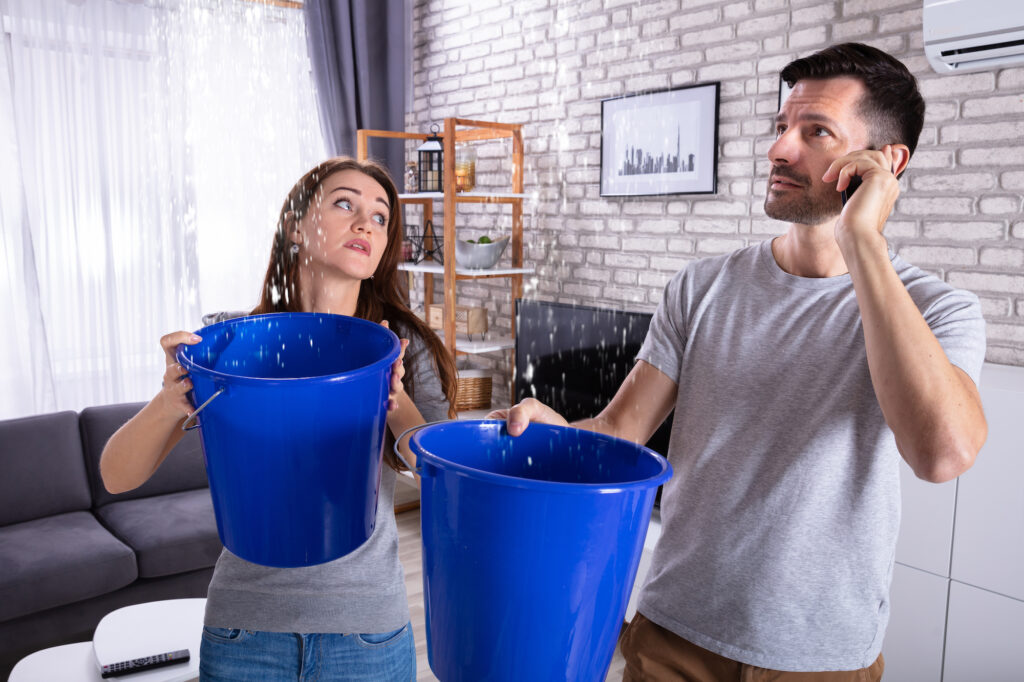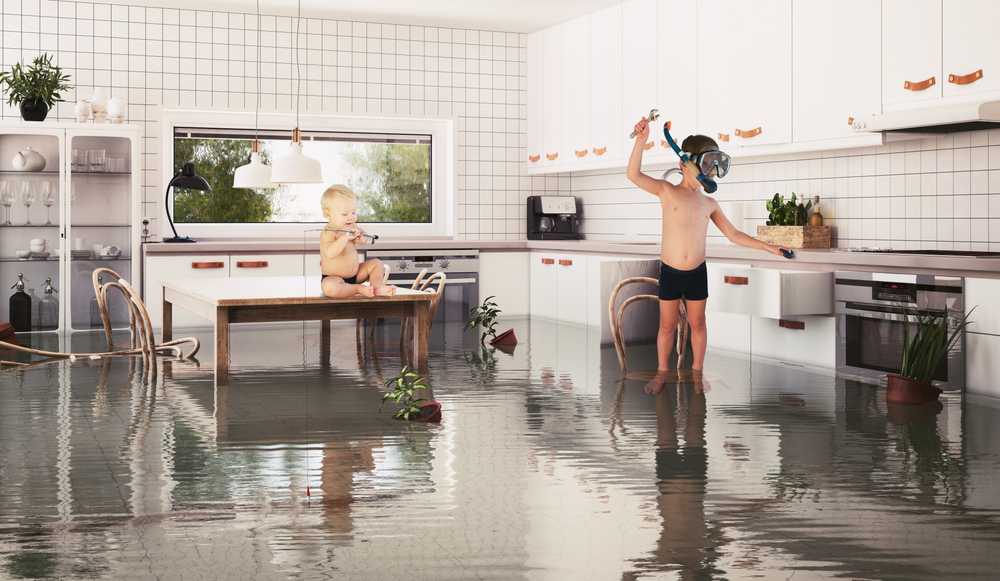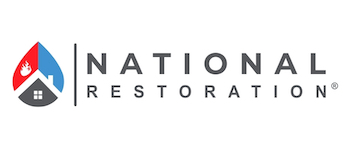Last Updated: June 19, 2024
Water damage is one of the most frustrating and destructive events that can happen in your home or business. Whether you have an appliance or roof leak, burst pipe, sewer backup, flooded basement or water damage from a storm or heavy rains, it’s important to take action as soon as possible to reduce the risk of further damage and prevent mold.
Causes of Water Damage
Water damage can be caused by a variety of factors. At National Restoration®️ North Carolina (NRNC), our 24/7 emergency services remediation team specializes in swiftly identifying the source of the damage and stopping it in its tracks. As a licensed general contractor, we also provide full restoration, remodeling and roofing services to get your property back to pre-loss condition, even better than before. Some of the most common causes of water damage include:
1. Flooding
Natural disasters and storm events from heavy rain, tornadoes, hurricanes, and flooding can cause massive water damage to homes and buildings.
2. Roofing & Interior Leaks
A leaky roof can allow water to seep into the attic, ceiling and walls, causing damage to your structure. This happens due to heavy rain, storms, hurricanes, tornadoes or snow. Often obvious, you know when you need to call an expert, when that leak is dripping over your dining room table! Sometimes, leaks go undetected, silently causing major damage to your property. It’s important to routinely check your ceilings for signs of water damage and get annual roofing inspections from a licensed general contractor. Left undetected, your structures continue to deteriorate, leading to major leaks that wreak havoc on your property and can cause mold.
3. Appliance Leaks
Appliances such as washing machines, dishwashers, and water heaters can malfunction and leak water, causing serious damage to floors and walls.
4. Plumbing Issues
Clogged or backed-up drains, toilets, or sewer lines can cause water to overflow and damage surrounding areas.
5. HVAC Issues
Air conditioning units and heating systems can leak water if not maintained properly or if there is a malfunction in the system.
6. Clogged Gutters
Clogged gutters can result in extensive water build-up, causing major roofing leaks. When water is unable to drain off the roof, it can seep under the shingles and cause damage to the underlayment and decking. Over time, this can lead to leaks that can damage the interior of the building. In winter, clogged gutters can lead to the formation of ice dams which causes roof damage.
7. Burst Pipes
Pipes can burst due to extreme temperatures, age, or high-water pressure, causing water to flood the surrounding areas.
8. Moisture Buildup
High levels of moisture or humidity can cause mold growth and water damage to walls, floors, and ceilings.

What to Do When You Have Water Damage
If you have water damage in your home or property, it’s important to take action quickly to prevent further damage and minimize the potential for mold growth.
1. Safety First!
Before entering the affected area, make sure it’s safe to do so. Turn off the power if necessary, and wear protective gear like gloves, boots, and a face mask.
2. Identify the Source
Try to identify the source of the water and stop it if possible. This could be a burst pipe, leaky roof, or flooding from outside. Call a licensed general contractor or remediation contractor if you’re unsure.
3. Document the Damage
Take photos and videos of the affected areas and any damaged items for insurance purposes.
4. Remove Water
If there is standing water, remove as much as possible with a wet-dry vacuum or pump. You can also use towels, mops, and buckets to soak up excess water.
5. Call a Reputable Water/ Flood Remediation Professional
Call an IICRC accredited restoration company that specializes in water, flood, and mold remediation. When you’re in an emergency, it can be easy to call the first company you see in a Google search. Make sure to review their website, testimonials, experience and accreditations.
- Moisture Scan: A moisture scan helps determine the level of moisture in your property. The process typically involves the use of a moisture meter to measure the amount of moisture present. The technician will typically take readings at various locations throughout the damaged area in order to get an accurate picture of the moisture content throughout. The results of the moisture scan can then be used to identify potential problems such as leaks, unidentified water damage and areas that are at risk of mold.
- Dry-Out: A technician will use professional equipment to dry out the area. It’s essential that the area is professionally dried out within 24-48 hours to prevent mold growth.
- Mold Testing: Mold testing can be performed in a variety of ways, including air sampling, surface sampling, bulk sampling and visual inspection. A qualified technician will test and analyze damaged areas and air quality to identify the type and concentration of mold present.
- Clean and Sanitize: The technician will clean and sanitize any affected areas, including walls, floors, and furniture. This will help prevent mold growth and mitigate odors. It’s recommended to use a technician that holds the Inspection Cleaning and Restoration Certification (IICRC) designation.
6. Call Your Insurance Company
Notify your agent soon as possible if damage is present. According to the Insurance Information Institute, a water damage insurance claim is one of the most common claims for homeowners, accounting for roughly 20% of insurance losses in 2020. The insurance company will send an adjuster to look at and assess the damage and determine if it is a covered loss.

We Provide 24/7 Emergency Services! Contact National Restoration North Carolina at 980-290-1913!
At National Restoration North Carolina, we understand how overwhelming water damage can be. We’re proud members of the Alliance of Independent Restorers (AIR), MidSouth Professional Cleaners Association, and hold the esteemed Institute of Inspection Cleaning and Restoration Certification (IICRC). As a leading restoration company and licensed general contractor with over 20 years of experience, we provide full-service 24/7 emergency services, restoration, remodeling and roofing services that you can count on. With advanced education, the latest technology, and industry-leading certifications, you can rest easy knowing we will swiftly diagnose the problem and mitigate further damage before getting it back to pre-loss condition!
RESOURCES

